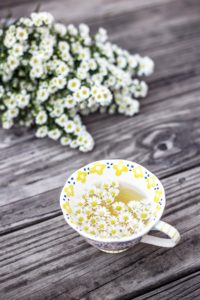Every week I spend some time thinking about what I’ll post about. It’s a little like kneeling next to a small pond and trying to catch fish with my bare hands. It’s not that the pond is empty of fish. I have folders and favorites, a tickle file, quotes and poetry and stories enough to blog about for years, but I’ve never been able to write on command, as it were. Every week is the perfectly shaped container for…something. I can’t begin to write until I find the right something, the fish of the right size, weight and color. Each week is different. Each fish is different. As a writer, I come to each week, post and moment slightly different.
Last night I was sitting in my little attic workspace thinking about the week ahead. The holidays are over. The new year begins. Now what? What will I post about , and how will I fit it into the week’s landscape?
It was very quiet. I didn’t have music playing, and I was conscious of the clock on the wall ticking and the scrape, scrape of a snow shovel down in the driveway as my partner continued digging us out from the last snowstorm. I luxuriated in no words.
I control my exposure to the news on TV and radio as well as online, but it’s impossible to miss the typical new year chatter, a glamourized mix of juicy recap and even juicer prediction. It’s so captivating, so provocative and enticing to revisit everything that broke or was lost in 2016 and then, for dessert, to wallow in what might happen next. We can look at pictures and videos, read quotes and statistics and listen, aghast, as talking heads polish their crystal balls with words.
Then we can go onto Twitter or Facebook, or the social media of our choice, and look at more “news,” this time especially tailored to our interests and tastes, all due to the benevolent omniscience of social media algorithms, and find validation and pseudo connection with those who agree with us while bullying and scorning those who don’t.
Meanwhile, now slips away, a moment at a time, that elusive interval between past and present, tiny as a thimble, large as the cosmos, and we never see the subtle shimmer of its passing because we’re deafened and blinded, overwhelmed and staggering in the clamor of technology, external racket and internal tumult.
Last night, as I sat, I remembered an old Zen story about an empty cup, and I thought I would look it up. How I could write a post about emptiness and the peace of wordlessness? It’s strange to be a writer and also feel occasionally hostile to the squawking of words.
The new year is a traditional fresh start, and everything I see and hear tells me in order to make a fresh start I should take more on. Ten ways to be more positive, seven foods to eat for better sex, six ways to stop smoking, twelve ways to stick to a workout routine, eight foods to eat for weight loss, twenty must-have beauty products for a new me!
There are people who write and talk about simplifying, unplugging, decluttering and just breathing, but there’s a lot of resistance. Many of us say we want our lives to work better, but when it comes down to actually making it so the sacrifices are too great.
Except on the other side of sacrifice is relief, and freedom and the peace of now. It’s just that we never get there!
So, this year perhaps we could empty our cups, just a little, and make room for sun flood and starlight, for bird trill and laughter. We could empty our cups enough for heartbeat and a deep breath, enough to grow feathers and learn to fly. We could give ourselves space for questions, curiosity and tender new shoots of growth. We could give ourselves room to kiss our own shoulders, take our own hands and listen to the whispering of our hearts.
May your cup have room in it for a joyous new year, my friends.
A student came to a renowned master to inquire about Zen. The master served tea, pouring it into the student’s cup. When the cup was full he kept right on pouring, and the tea spilled down the sides of the cup onto the table and the floor.
The student watched in consternation, protesting at last. “Stop! The cup is full! No more will go in!”
“You are like this cup,” said the master. “You’re full. How can I teach you Zen unless you empty your cup?”
(This is a classic Zen story and there are hundreds of versions, both in print and on line. It’s usually titled A Cup Of Tea, or similar. The book in my hand is Zen Flesh Zen Bones, a collection compiled by Paul Reps.)
All content on this site ©2017
Jennifer Rose
except where otherwise noted
© 2017 – 2021, Jenny Rose. All rights reserved.


